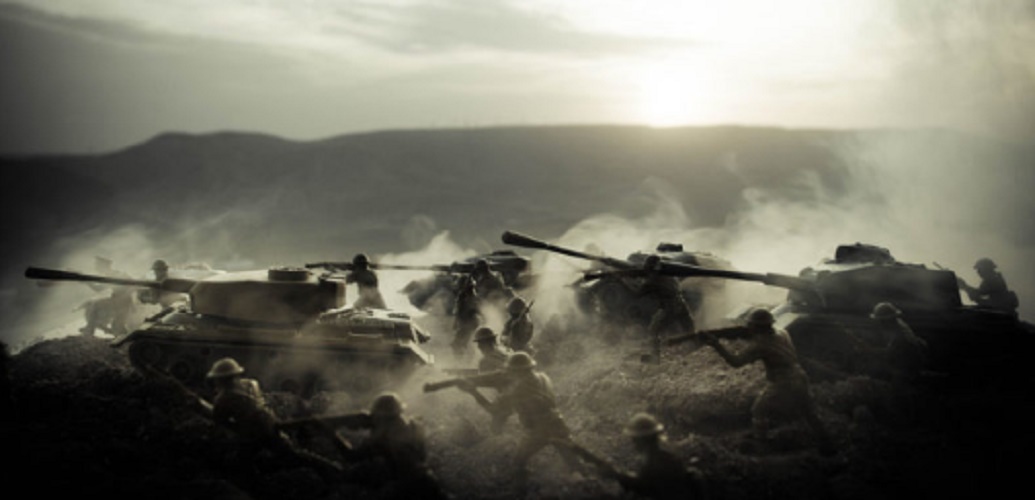What is conflict?
We explain what a conflict is and what types of conflicts exist. In addition, why they occur and what are the social conflicts.
-
What is conflict?
A conflict is a manifestation of opposing interests, in the form of a dispute . It has many synonyms: fight, discrepancy, disagreement, separation, all with a negative a priori assessment. It is worth stopping in that the conflict is a social construction different from violence , which may involve it, just as it may not.
Conflicts are situations in which two or more people have conflicting interests that cannot develop at the same time , that is, if one materialized, the other would be annulled.
Many times you enter into conflict situations thanks to the scarcity of resources , although the abundance of a resource can also be a cause of conflict, since people could fight to gain control, and therefore the benefits provided by that resource.
The conflict, as stated above, implies a divergence in the interests of two necessary parties with respect to the same purpose, so for their resolution they must surely accept that neither of the two objectives can be fully satisfied.
-
Interpersonal conflicts

Human relationships inevitably lead to various conflicts . From birth, human beings live together and adapt within the family or the most intimate circles, where they acquire some first principles and personal values .
As people go out to peripheral circles and meet new people, these values are likely to begin to be questioned (on the basis that all people are different), and the different interpersonal conflicts are thus raised.
An interpersonal conflict can be:
- Unilateral (a person who has a complaint or dispute with others),
- Bilateral (two parts that want something, each other),
- Multilateral (a group of several people who are fractured through conflict).
It is not possible to establish a ‘manual’ for the resolution of conflicts, since each one of them has a particular dynamic : each one has its individuals, its problems and its resolution process. The resolution will come when people have a cooperative attitude.
The sociology studies conflicts understood from another perspective : when they come from the very structure of society . Economic inequalities, abuse of authority and disagreements between groups are the most analyzed reasons for this science .
The Marxist theory , for example, believes that the human race since its existence is in social conflict . One of the clearest examples we could cite is that of the union and the employer: the workers of a company (who need to work, to support their families) collectively organize and express their demands to an employer, who needs to have them working to obtain The rent you are looking for. The benefit that one obtains will be detrimental to the other.
This example is so illustrative that it is called collective conflict, even when it is the first negotiating table. Many times they result in strikes or dismissals and the resolution can only come from external mediations.
Conflicts can also be between countries , and often disputes over territorial interests go through the people who inhabit them. In the best case, they are resolved through treaties or agreements, but unfortunately, they often lead to wars .
-
Types of conflicts

We have mentioned some, but below a list with the main types of conflicts . We can classify them in two ways: by the number of people participating or by their characteristics.
- Personal conflicts. In these conflicts, the participants have prejudices among themselves and are usually linked by closer ties. Many times the origin of personal conflicts is related to emotional factors.
- Group Conflicts In group conflicts the problem originates between more than two people for religious or ideological, political or economic reasons.
- Ideological conflicts. In conflicts over political ideologies, the positions of the opposing individuals are opposed or defend interests of different classes. The differences in the positions will be very clear and in some cases they could become armed conflicts if one or both parties have or claim the power of a nation. In politics, an ideological conflict that can be debated is normal and expected, and sometimes the arguments are aggressive. In conflicts over political ideologies, it is very common to observe propaganda displays.
- Religious Conflicts In religious conflicts we can find different sectors faced within the same cult as well as different cults that oppose each other. The struggles have to do with the interpretation of the corresponding scriptures or the doctrines chosen to be adopted. These conflicts have had violent outcomes throughout history . It is even very common to see religious conflicts caused by two or more cults that call themselves “the true religion . “
- Political conflicts. In political conflicts, the sides or sectors try to obtain the political, economic and territorial power of a state. The predominance of one sector means the absence of the other faction in power, except in indirect and less important ways. Sometimes political conflicts trigger civil wars or armed conflicts between countries.
- Philosophical conflicts. In philosophical conflicts the differences are subjective to each philosopher, that is, not everyone sees things in the same way or is in the same position. Each one has his interpretation on a subject, a school or a problem and many times each vision excludes the others. These conflicts do not generate major or more violent conflicts.
- Armed conflicts. In armed conflicts the groups are usually military or paramilitary and seek to obtain the power, territory or resource disputed by force.





